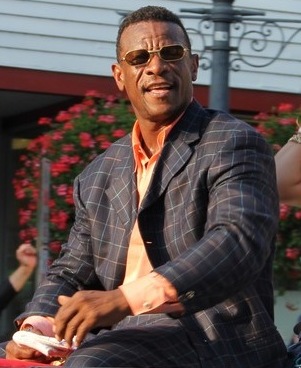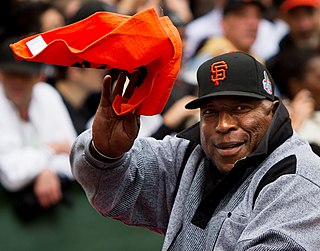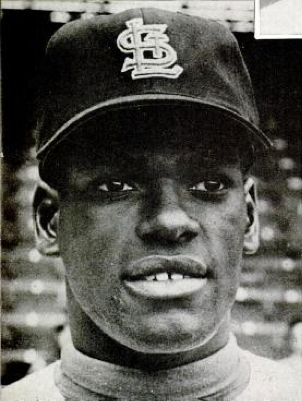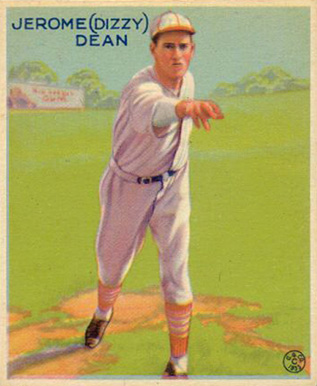
Elections to the Baseball Hall of Fame for 2004 proceeded in keeping with rules enacted in 2001. The Baseball Writers' Association of America (BBWAA) held an election to select from recent players; Dennis Eckersley and Paul Molitor gained induction to the Hall.

Elections to the Baseball Hall of Fame for 1994 followed the system in place since 1978. The Baseball Writers' Association of America (BBWAA) voted by mail to select from recent major league players and elected Steve Carlton. The Veterans Committee met in closed sessions to consider older major league players as well as managers, umpires, executives, and figures from the Negro leagues. It selected two, Leo Durocher and Phil Rizzuto. A formal induction ceremony was held in Cooperstown, New York, on July 31, 1994.

Elections to the Baseball Hall of Fame for 1988 followed the system in place since 1978. The Baseball Writers' Association of America (BBWAA) voted by mail to select from recent major league players and elected Willie Stargell. The Veterans Committee met in closed sessions to consider older major league players as well as managers, umpires, executives, and figures from the Negro leagues; it selected no one. A formal induction ceremony was held in Cooperstown, New York, on July 31, 1988, with Commissioner of Baseball Peter Ueberroth in attendance.

Elections to the Baseball Hall of Fame for 2009 proceeded according to revised rules enacted in 2001 and further revamped in 2007. The Baseball Writers' Association of America (BBWAA) held an election to select from among recent players, and elected Jim Rice and Rickey Henderson.
Elections to the National Baseball Hall of Fame and Museum for 1987 followed the system in place since 1978. The Baseball Writers' Association of America (BBWAA) voted by mail to select from recent major league players and elected two, Catfish Hunter and Billy Williams. The Veterans Committee met in closed sessions to consider older major league players as well as managers, umpires, executives, and figures from the Negro leagues. It selected Ray Dandridge from the Negro leagues. A formal induction ceremony was held in Cooperstown, New York, on July 26, 1987, with Commissioner of Baseball Peter Ueberroth in attendance.

Elections to the Baseball Hall of Fame for 1986 followed the system in place since 1978. The Baseball Writers' Association of America (BBWAA) voted by mail to select from recent major league players and elected Willie McCovey. The Veterans Committee met in closed sessions to consider older major league players as well as managers, umpires, executives, and figures from the Negro leagues. It selected two players, Bobby Doerr and Ernie Lombardi. A formal induction ceremony was held in Cooperstown, New York, on August 3, 1986, with Commissioner of Baseball Peter Ueberroth, and former Commissioners Bowie Kuhn and Happy Chandler, in attendance.
Elections to the Baseball Hall of Fame for 1984 followed the system in place since 1978. The Baseball Writers' Association of America (BBWAA) voted by mail to select from recent major league players and elected three: Luis Aparicio, Don Drysdale, and Harmon Killebrew. The Veterans Committee met in closed sessions to consider older major league players as well as managers, umpires, executives, and figures from the Negro leagues. It selected two players, Rick Ferrell and Pee Wee Reese. A formal induction ceremony was held in Cooperstown, New York, on August 12, 1984.
Elections to the Baseball Hall of Fame for 1983 followed the system in place since 1978. The Baseball Writers' Association of America (BBWAA) voted by mail to select from recent major league players and elected two, Juan Marichal and Brooks Robinson. The Veterans Committee met in closed sessions to consider older major league players as well as managers, umpires, executives, and figures from the Negro leagues. It selected Walter Alston and George Kell. A formal induction ceremony was held in Cooperstown, New York, on July 31, 1983, with Commissioner of Baseball Bowie Kuhn presiding.
Elections to the Baseball Hall of Fame for 1982 followed the system in place since 1978. The Baseball Writers' Association of America (BBWAA) voted by mail to select from recent major league players and elected two, Hank Aaron and Frank Robinson. The Veterans Committee met in closed sessions to consider older major league players as well as managers, umpires, executives, and figures from the Negro leagues. It selected the second Commissioner of Baseball, Happy Chandler, and former New York Giants shortstop Travis Jackson. A formal induction ceremony was held in Cooperstown, New York, on August 1, 1982, with the current Commissioner of Baseball, Bowie Kuhn, presiding.

Elections to the Baseball Hall of Fame for 1981 followed the system in place since 1978. The Baseball Writers' Association of America (BBWAA) voted by mail to select from recent major league players and elected Bob Gibson. The Veterans Committee met in closed sessions to consider older major league players as well as managers, umpires, executives, and figures from the Negro leagues. It selected Rube Foster and Johnny Mize. Foster would be one of two people from the Negro leagues elected in seventeen years, before introduction of a separate ballot in 1995. A formal induction ceremony was held in Cooperstown, New York, on August 2, 1981, with Commissioner of Baseball Bowie Kuhn presiding.

Elections to the Baseball Hall of Fame for 1953 followed a radically new procedure. The institution appointed its Committee on Baseball Veterans, the famous "Veterans Committee", to meet in person and consider pioneers and executives, managers, umpires, and earlier major league players. Committees in the 1930s and 1940s had chosen several pioneers and executives, but this was the first direction of anyone's attention to field personnel other than players, the managers and umpires.
Elections to the Baseball Hall of Fame for 1976 followed the system in place since 1971. The Baseball Writers' Association of America (BBWAA) voted by mail to select from recent major league players and elected two, Bob Lemon and Robin Roberts. The Veterans Committee met in closed sessions to consider executives, managers, umpires, and earlier major league players. It selected three players: Roger Connor, Cal Hubbard, and Freddie Lindstrom. The Negro Leagues Committee also met in person and selected Oscar Charleston. A formal induction ceremony was held in Cooperstown, New York, on August 9, 1976, with Commissioner of Baseball Bowie Kuhn presiding.
Elections to the Baseball Hall of Fame for 1972 followed the system established one year earlier. The Baseball Writers' Association of America (BBWAA) voted by mail to select from recent major league players and elected three: Yogi Berra, Sandy Koufax, and Early Wynn. The Veterans Committee met in closed sessions to consider executives, managers, umpires, and earlier major league players. It also selected three people: Lefty Gomez, Will Harridge, and Ross Youngs. The Negro Leagues Committee met for the second time and selected Josh Gibson and Buck Leonard. A formal induction ceremony was held in Cooperstown, New York, on August 7, 1972, with Commissioner of Baseball Bowie Kuhn presiding.
Elections to the Baseball Hall of Fame for 1969 followed the system reintroduced in 1968. The Baseball Writers' Association of America (BBWAA) voted once by mail to select from recent major league players and elected two, Roy Campanella and Stan Musial. The Veterans Committee met in closed sessions to consider executives, managers, umpires, and earlier major league players. It selected two players, Stan Coveleski and Waite Hoyt. A formal induction ceremony was held in Cooperstown, New York, on July 28, 1969, with Commissioner of Baseball Bowie Kuhn presiding.
Elections to the Baseball Hall of Fame for 1968 followed rules revised in June 1967, which returned the Baseball Writers' Association of America (BBWAA) to annual elections without any provision for a runoff. In the event, the BBWAA voted once by mail to select from recent major league players, and elected Joe Medwick. The Veterans Committee met in closed sessions to consider executives, managers, umpires, and earlier major league players. It selected two players, Kiki Cuyler and Goose Goslin. A formal induction ceremony was held in Cooperstown, New York, on July 22, 1968, with Commissioner of Baseball William Eckert presiding.

Elections to the Baseball Hall of Fame for 1967 included a special election, as the Baseball Writers' Association of America (BBWAA) held its first balloting in an odd-number year since 1955. The special election was held due to some ineligible players having received votes in the prior year's balloting, and the BBWAA wanting "to give those eligible every opportunity" to be selected.

Elections to the Baseball Hall of Fame for 1966 followed the system introduced for even-number years in 1956. The Baseball Writers' Association of America (BBWAA) voted by mail to select from recent major league players with provision for a second, "runoff" election in case of no winner. Ted Williams tallied more than 90% on the first ballot. Meanwhile, the Veterans Committee was meeting annually to consider executives, managers, umpires, and earlier major league players. It selected Casey Stengel. A formal induction ceremony was held in Cooperstown, New York, on July 25, 1966, with Commissioner of Baseball William Eckert presiding. During his acceptance speech, Williams advocated for the inclusion of Negro league baseball players, such as Satchel Paige and Josh Gibson, in the Hall of Fame. Paige was inducted in 1971, and Gibson in 1972.

Elections to the Baseball Hall of Fame for 1964 followed the system introduced for even-number years in 1962. The Baseball Writers' Association of America (BBWAA) voted by mail to select from recent major league players with provision for a second, "runoff" election in the event of no player receiving enough votes for induction. The runoff was necessary this year, with Luke Appling the winner. Further, the eligibility of retired players was reduced from having retired 30 years prior to election to 20 years prior.
Elections to Baseball Hall of Fame for 1960 followed a system established after the 1956 election. The Veterans Committee was meeting only in odd-numbered years. The Baseball Writers' Association of America (BBWAA) voted by mail to select from recent major league players, and as had been the case in 1958, elected no one. For the third time, the induction ceremonies in Cooperstown, New York, were canceled because there was no one to induct. This would be the last time until 2021 that no one was selected for induction to the Hall.
Elections to the Baseball Hall of Fame for 1963 followed a system established for odd-number years after the 1956 election. Namely, the baseball writers were voting on recent players only in even-number years.











